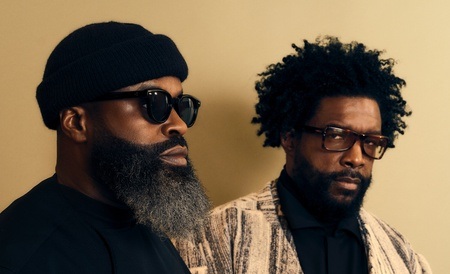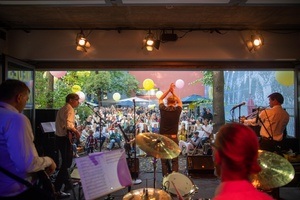PHOTO:
© Foto © 2012, Leo Seidel
Fidelio
In the organizer's words:
This opera is a monolith: it is considered the freedom opera par excellence and is probably the first specifically German opera in its combination of stirring piece, rescue opera and appeal to humanity. David Hermann focuses on manipulation mechanisms of power and powerlessness ... Conductor: Stephan Zilias; Director: David Hermann; With Philipp Jekal, Markus Brück, Valentyn Dytiuk, Flurina Stucki, Tobias Kehrer, Lilit Davtyan, Gideon Poppe and others.About the pieceComposed in the spirit of the French Revolution, FIDELIO negotiates the question of individual and collective freedom in the face of tyrannical oppression. Beethoven drew on a political material rooted in the tradition of French rescue opera for the work of his only opera. It is the story of a death-defying woman, Leonore, who frees her husband, imprisoned for political despotism, from captivity and thus triggers a political upheaval. The fact that the opera intersects elements of German Spieloper, arias of romantic inwardness, orchestral interludes of tone poetic quality, and a symphonic ending in no way points to Beethoven's musical inability to compose a coherent opera. Rather, the form takes into account his revolutionary notion of contrasting dramaturgy and blasting of form - the further Leonore descends into the depths of the dungeon, the more clearly the existential core of the drama emerges. The unconditional affirmation of freedom, human rights and humanism finally breaks through in the symphonic, choral finale, in which Beethoven foreshadows the future music of his "Ninth" with a quotation from Schiller's "An die Freude. In the course of its reception history, the opera was repeatedly politically appropriated by opposing camps, and Leonore was stylized as an icon. And yet Beethoven's vision of a humanist society captured in music outshines all subsequent attempts to reduce the work to unambiguities.
About the productionDavid Hermann, who has impressed at the Deutsche Oper with his productions of such diverse works as DAS MÄDCHEN MIT DEN SCHWEFELHÖLZERN, ORESTEIA and DIE SACHE MAKROPULOS, among others, took on Beethoven's masterpiece with stage and costume designer Johannes Schütz. Reflecting on inside and outside, freedom and captivity, power and powerlessness is at the center of their questioning. For FIDELIO, they have created a stage space that translates into poetic images the manipulative mechanisms and hierarchies of the prison so vividly described by Beethoven and his librettists. With his sensitive psychological characterization, David Hermann shows the deformations, the pressure of suffering and the dangerous instability of the characters who are part of this unleashed system - whether out of compulsion as inmates or "voluntarily" as guards or employees. Leonore, too, goes deep into this system, traveling from brightness into darkness, while the pressure for all characters involved increases immeasurably. Can freedom ever be fully achieved without new suffering arising from it? This content has been machine translated.





